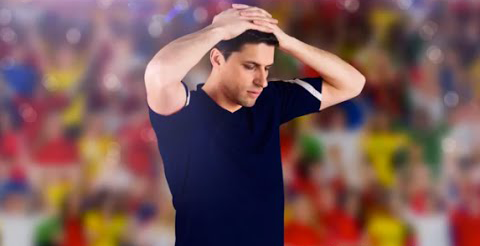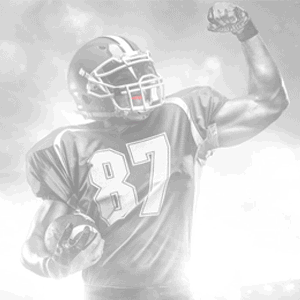Controlling Your Emotions: How To Overcome Anxiety In Your Game

Have you ever had butterflies bouncing around in your stomach before a big game? Did you ever feel sweaty even before playing? How about getting your heart rate elevated so high you think you might be fainting?
These are common symptoms of anxiety. Two types of anxiety that can affect you are called Cognitive Mental State Anxiety and Somatic Physical Anxiety. Cognitive Mental State Anxiety symptoms may also include negative thoughts, feelings of apprehension or nervousness.
Somatic Physical Anxiety, describes the characteristics that affect your body — for example, having the habit of throwing up before a game/competition or shaking in the locker room.
Both types of anxiety can be overcome, but we must remember that what works for one athlete may not for another. Therefore, coping with anxiety requires a wide range of different tactics.
It really doesn’t matter whether you are a professional or a youth athlete. There are different strategies that may be implemented to help you out. Some you may need to develop on an ongoing basis, while others may be used and redefined as you improve your skills.
Deep Breathing
This strategy needs to be practiced over time to become effective. You need to focus on your breathing as well as on different parts of your body to realize any appreciable benefit. Doing so helps to release tension from other areas of your body.
Relaxation Training
The purpose of relaxation training is to enable you to feel relaxed in both mind and body. There are a couple of techniques used by athletes, one of which is listening to music. Another practice that is becoming increasingly popular is yoga.
Using positive self-talk and developing a ‘mind video’ of all the good plays you’ve performed in the past is also helpful.
Emotional Control
You need to understand that you must work to access your inner feelings. Identify the good performances and compare how you felt following a bad performance.
This helps you to understand how you react and feel during contrasting emotional states.
Goal Setting
A great but simple technique for you to use on a regular basis is setting goals. This gives you purpose and direction for you to focus on. Set focus goals or process goals, not just outcome goals, as that helps with building better habits.
Ask yourself these Power Thought questions:
1. What type of mental routines are there to help myself overcome and perform better?
2. Which major factor keeps me from performing at my best?
Want to perform at your absolute best? It’s important to control your emotions. Try some of these tricks to help overcome the anxiety in your game.
Guest Author: Coach Warren Nye
Coach Warren Nye is the founder and CEO of UltimateHockeySource and the UHS ProShop.
From an article appearing on CrossIceHockey.com – Where Rec Hockey Lives© 2016 Digital Media Publications, Inc. All rights reserved. Published with permission.




 Have you ever had butterflies bouncing around in your stomach before a big game? Did you ever feel sweaty even before playing? How about getting your heart rate elevated so high you think you might be fainting?
Have you ever had butterflies bouncing around in your stomach before a big game? Did you ever feel sweaty even before playing? How about getting your heart rate elevated so high you think you might be fainting? 